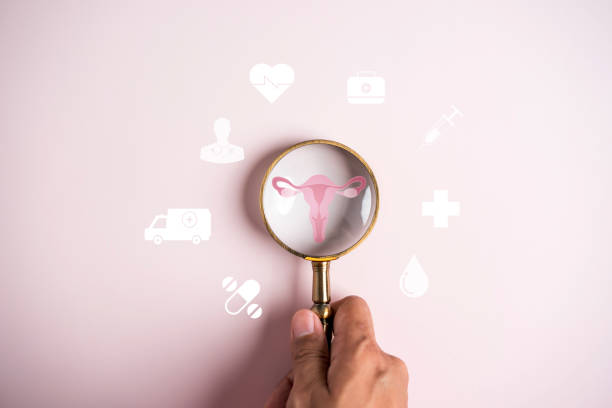The vaginal microbiome, a delicate ecosystem of microorganisms living in the vagina, plays a crucial role in maintaining vaginal health and protecting against infections. More than just a guardian of vaginal health, the vaginal microbiome also significantly influences hormone health and fertility. The balance of bacteria within this microbiome can affect estrogen levels, ovulation, and even the success of fertility treatments.
In this blog, we will delve into the intriguing world of the vaginal microbiome and its connections to hormone health and fertility. We’ll discuss the various bacteria that inhabit the vaginal microbiome, explore how these microorganisms impact estrogen levels, and examine the broader implications for fertility.
Join us as we uncover the vital role the vaginal microbiome plays in women’s health and fertility. Let’s explore together!
Types of Vaginal Microbiome Imbalances

The vaginal microbiome is a delicate ecosystem made up of various microorganisms, such as bacteria, yeast, and viruses. When this ecosystem is balanced, it can help protect against infections, regulate pH levels, and support hormone health and fertility. Disruption of the microbial balance in the vagina, also known as dysbiosis, can lead to various health problems related to the vagina.
There are several types of vaginal microbiome dysbiosis, including:
- Bacterial vaginosis (BV): An overgrowth of certain bacteria, such as Gardnerella vaginalis, can cause the most common type of vaginal dysbiosis. This condition leads to a decrease in beneficial lactobacilli. Symptoms of this condition may include a fishy odor, thin greyish discharge, and itching or burning around the vulva.
- Yeast infections: An overgrowth of Candida albicans, which is a type of yeast that is typically present in small quantities in the vagina, can result in the following symptoms. Common signs of an overgrowth include itching, burning, and the presence of thick white discharge.
- UTI-related dysbiosis: A urinary tract infection (UTI) can also cause changes in the vaginal microbiome, leading to dysbiosis. This can result in symptoms such as pain during urination, frequent urination, and cloudy or strong-smelling urine.
- Group B streptococcus (GBS) colonization: GBS is a type of bacteria that is commonly found in the vaginal and rectal areas. In some cases, GBS can cause complications during pregnancy, such as premature birth or infection in the newborn. Screening for GBS during pregnancy is recommended.
There are several potential causes of vaginal microbiome dysbiosis, including:
- Antibiotic use: The use of antibiotics can upset the fragile equilibrium of the vaginal microbiome, causing an increase in harmful bacteria and a reduction in beneficial lactobacilli.
- Hormonal changes: Hormonal changes during pregnancy, menstruation, or menopause can also affect the vaginal microbiome.
- Sexual activity: Sexual activity can introduce new bacteria into the vagina, which can lead to dysbiosis.
- Diet and lifestyle: Poor diet and lifestyle factors, such as smoking and stress, can also affect the vaginal microbiome.
Understanding the different types of vaginal microbiome dysbiosis and its potential causes is essential for maintaining good vaginal health and fertility.
| Name |
Potential Causes |
How Diagnosed |
Conventional Treatment |
Natural Treatment Options |
| Bacterial Vaginosis (BV) |
Imbalance of bacteria in the vagina, sexual activity, douching, antibiotics, hormonal changes |
Vaginal swab and analysis |
Antibiotics (oral or vaginal), antifungal medications |
Probiotics, boric acid suppositories, tea tree oil, garlic suppositories |
| Yeast Infections |
Imbalance of Candida albicans fungus in the vagina, antibiotics, hormonal changes, weakened immune system |
Vaginal swab and analysis |
Antifungal medications (oral or vaginal) |
Probiotics, boric acid suppositories, tea tree oil, garlic suppositories, apple cider vinegar |
| Group B Streptococcus (GBS) |
Colonization of bacteria in the vagina, pregnancy |
Vaginal swab and analysis |
Antibiotics during pregnancy and/or labor |
Probiotics, garlic suppositories, goldenseal |
| Atrophic Vaginitis |
Decrease in estrogen levels, menopause, hormonal changes, medications |
Physical exam, vaginal pH test, biopsy |
Hormone therapy (vaginal estrogen) |
Vitamin E, probiotics, coconut oil, vaginal moisturizers |
| Cytolytic Vaginosis |
Overgrowth of lactobacilli bacteria in the vagina, menstrual cycle, hormonal changes |
Vaginal pH test, symptoms |
Avoiding acidic foods and beverages, baking soda sitz baths |
Probiotics, boric acid suppositories |
Note: This information is for educational purposes only and cannot replace medical advice. To get the right diagnosis and treatment for vaginal health concerns, it is important to seek help from a healthcare professional.
Understanding the different types of vaginal microbiome imbalances is essential for maintaining optimal vaginal health. However, these imbalances can also impact other areas of health, including hormone health. In this next section, we’ll dive deeper into the connection between the vaginal microbiome and hormone health.
The Vaginal Microbiome & Hormone Health
The vaginal microbiome plays a vital role in a woman’s hormone health and fertility. This complex ecosystem, when balanced, maintains an acidic environment that protects against harmful bacteria, viruses, and other pathogens. It also helps regulate vaginal pH levels and supports the production of healthy cervical fluid, which is essential for fertility and overall reproductive health.
However, the vaginal microbiome can be sensitive to hormonal fluctuations. For instance, changes in estrogen levels during the menstrual cycle can alter vaginal pH, increasing the risk of infections. Similarly, during menopause, a drop in estrogen can thin the vaginal walls and raise the pH, creating a less hospitable environment for beneficial bacteria.
Additionally, the vaginal microbiome is crucial in managing estrogen levels in the body. It produces an enzyme called beta-glucuronidase, which helps break down and eliminate estrogen. If the microbiome is imbalanced, it might not produce enough of this enzyme, leading to elevated estrogen levels and potential hormonal imbalances.
Dysbiosis, or microbial imbalance, in the vaginal microbiome can lead to overgrowths of harmful bacteria or yeast, causing inflammation and further hormonal disturbances. Conditions like bacterial vaginosis and yeast infections can exacerbate this imbalance, complicating the microbiome’s ability to function properly.
Maintaining a healthy vaginal microbiome is therefore essential not just for preventing infections but also for supporting hormone regulation and reproductive health. Ensuring this balance can help manage estrogen levels effectively, prevent hormonal imbalances, and sustain overall reproductive well-being.
Now, let’s explore how the vaginal microbiome directly influences fertility and what steps can be taken to support its health.
The Vaginal Microbiome & Fertility
The vaginal microbiome plays a pivotal role in a woman’s fertility. A healthy balance of good bacteria in this ecosystem not only fosters a conducive environment for egg fertilization and implantation but also guards against harmful bacteria.
Research indicates that an imbalanced vaginal microbiome may lead to infertility and increase the likelihood of recurrent miscarriages. This imbalance can trigger inflammation, oxidative stress, and altered immune responses, all of which can impair fertility.
Factors such as antibiotic use, hormonal contraceptives, douching, poor dietary habits, and certain medical conditions like polycystic ovary syndrome (PCOS) and endometriosis can disrupt this delicate microbial balance. Such disruptions can promote the growth of harmful bacteria at the expense of beneficial ones, further complicating fertility issues.
However, there are proactive steps women can take to nurture their vaginal microbiome and enhance fertility. These include avoiding douching and harsh soaps, practicing safer sex to prevent the introduction of harmful bacteria, and consuming a diet rich in probiotics and prebiotics. Supplementing with lactobacillus-based probiotics can be particularly effective in rebalancing the vaginal microbiome, potentially improving fertility outcomes.
In essence, maintaining a balanced vaginal microbiome is crucial for optimal fertility. Women facing difficulties in conceiving or those with a history of miscarriages should consider consulting a healthcare provider to evaluate their vaginal microbiome and devise a strategy to boost their reproductive health.
Next, we’ll explore how incorporating probiotics into your regimen can support and maintain a healthy vaginal microbiome, aiding fertility and overall reproductive wellness.
Probiotics & Supporting Vaginal Health

Maintaining a healthy vaginal microbiome is essential for optimal reproductive and sexual health. Incorporating high-quality probiotics into your daily regimen is an effective way to support this balance.
Probiotics, which are live microorganisms, can provide significant health benefits when consumed in adequate amounts. They help maintain a balance of beneficial and harmful bacteria in the vaginal area, which is crucial for preventing infections and ensuring overall vaginal well-being.
Specific strains of probiotics, such as Lactobacillus rhamnosus, Lactobacillus crispatus, and Lactobacillus jensenii, are particularly beneficial for vaginal health. These probiotics produce lactic acid and hydrogen peroxide, which help maintain a healthy vaginal pH level and inhibit the growth of harmful bacteria.
When choosing a probiotic supplement for vaginal health, it’s important to select one that contains strains known for their efficacy in this area. Consider speaking with a trained supplement advisor and looking for high-quality probiotics that focus on “women’s health” or “vaginal health.” In addition, consider probiotics formulas that contain at least 10 billion CFUs (colony-forming units) per serving.
While probiotics are a helpful part of maintaining vaginal health, they should not be relied upon as the sole treatment for vaginal infections or other serious health issues. Always consult with a qualified professional for an accurate diagnosis and appropriate treatment.
In summary, incorporating probiotics into your daily routine can play a vital role in promoting and maintaining a healthy vaginal microbiome, thus supporting your overall reproductive and sexual health. Adopting this practice along with other healthy lifestyle choices can greatly benefit your vaginal and general health.
Table of the most important probiotics for women’s reproductive and hormone health and fertility:
| Probiotic Name |
Importance |
Optimal Levels |
Best Form to Take |
| Lactobacillus crispatus |
Produces lactic acid, which maintains acidic pH in the vagina to prevent overgrowth of harmful bacteria |
≥10^7 CFU/mL |
Vaginal suppository or capsule |
| Lactobacillus jensenii |
Produces hydrogen peroxide, which inhibits the growth of harmful bacteria |
≥10^7 CFU/mL |
Vaginal suppository or capsule |
| Lactobacillus rhamnosus GR-1 |
Helps to prevent bacterial vaginosis and yeast infections |
≥10^9 CFU/day |
Oral capsule |
| Lactobacillus reuteri RC-14 |
Helps to prevent bacterial vaginosis and yeast infections |
≥10^9 CFU/day |
Oral capsule |
| Bifidobacterium lactis HN019 |
Supports the immune system and helps to prevent inflammation |
≥10^9 CFU/day |
Oral capsule |
Note: It is essential to understand that the ideal levels and most effective form of intake may differ depending on personal requirements and the type of supplement used. Before beginning any new supplement regimen, it’s advisable to seek advice from a healthcare professional.
Ensuring a healthy balance of bacteria in the vaginal microbiome is essential for overall reproductive health. While probiotics play a crucial role in supporting vaginal health, they are not the only option available. In the next section, we’ll explore some natural remedies that can also be used to maintain a healthy vaginal microbiome.
Natural Remedies for Supporting Vaginal Health
Maintaining a healthy vaginal microbiome is crucial for overall reproductive and hormonal health. In addition to probiotics, several natural remedies can support a balanced vaginal microbiome and prevent or treat dysbiosis.
If you’re looking for a natural remedy, boric acid may be one option to consider. Another option may be to consider using apple cider vinegar or tea tree oil, both of which have properties that can fight bacteria and fungi. These properties enable them to combat bacteria and fungi effectively and can help in maintaining the natural balance of the vagina, preventing the growth of harmful bacteria and yeast. Tea tree oil, in particular, may be effective in treating vaginal infections due to its antifungal and antibacterial properties.
Aloe vera may also be a beneficial natural remedy for supporting vaginal health. This substance has properties that may reduce inflammation and itching and may also prevent the growth of harmful bacteria. Additionally, aloe vera may help to promote the development of healthy bacteria, which is essential for a balanced vaginal microbiome.
To maintain a healthy vaginal microbiome, you can try natural remedies like garlic, which has antimicrobial properties, and coconut oil, which can help moisturize and soothe the vaginal area. It is important to note that while natural remedies can be effective, they should not replace medical treatment of severe infections or dysbiosis. To determine the most suitable treatment for your specific requirements, it is always advisable to seek advice from a qualified healthcare professional who specializes in natural remedies for women’s health.
Table of some potential natural remedies for treating vaginal microbiome concerns
| Type of Imbalance |
Natural Remedy |
How to Use |
Potential Side Effects/Issues |
| Bacterial Vaginosis |
Probiotics |
Take orally or apply vaginally as directed |
Some people may experience gas, bloating, or upset stomach |
| Yeast Infection |
Tea Tree Oil |
Dilute in carrier oil and apply to affected area or add to bathwater |
Can cause skin irritation or allergic reaction in some individuals |
| UTIs |
D-Mannose |
Take as directed with water |
High doses may cause bloating or diarrhea |
| Vaginal Odor |
Apple Cider Vinegar |
Dilute in water and use as a vaginal rinse |
Can cause irritation or burning, especially if not diluted properly |
| Vaginal Dryness |
Coconut Oil |
Apply directly to the vaginal area as needed |
May cause irritation or allergic reaction in some individuals |
Note: It is crucial to keep in consideration that each natural remedy may not be effective for everyone. Therefore, it is always recommended to consult a healthcare professional before attempting any new treatment.
Introducing natural remedies into your daily routine can be a great way to promote a healthy vaginal microbiome. However, altering your lifestyle, like maintaining a healthy diet and managing stress, also plays a significant role in maintaining vaginal health, hormone health, and fertility. In the next section, we will explore some straightforward yet effective strategies for maintaining optimal vaginal health through lifestyle modifications.
Lifestyle Changes to Support Vaginal Health, Hormone Health, & Fertility
It’s important to maintain a healthy lifestyle to support optimal vaginal health, hormone balance, and fertility. By adopting positive lifestyle habits, one can significantly impact these aspects and help prevent or manage vaginal dysbiosis.
Here are some tips for supporting vaginal health through lifestyle changes:
- Diet: Consuming a diet that is high in vitamins and minerals is crucial for preserving a healthy vaginal microbiome. Maintaining good health requires a balanced diet. This includes consuming fresh fruits and vegetables, whole grains, lean proteins, and healthy fats. To keep it simple, make sure you eat a variety of foods from these categories. It’s important to avoid consuming processed foods, refined sugars, and unhealthy fats as they can disrupt the helpful bacteria in the vagina.
- Exercise: Regular exercise can help to support vaginal health by improving circulation and reducing inflammation. Aim to moderate exercise for at least 30 minutes daily, such as walking, cycling, or yoga.
- Stress: It’s important to note that chronic stress can have negative effects on both the vaginal microbiome and fertility. It is crucial to cultivate healthy coping mechanisms to handle stress effectively and improve overall health. Mindfulness, meditation, and engaging in deep breathing exercises are proven methods that can help manage stress with great efficacy.
- Sleep: It’s important to get enough sleep to balance your hormones and support your fertility. It is recommended to get 7-8 hours of sleep every night to maintain good health.
- Hygiene: Maintaining a healthy vaginal microbiome requires practicing good hygiene. Using strong soaps, perfumes, or douches in the vaginal area can disrupt the balance of helpful bacteria. It is advisable to use mild, unscented products and opt for cotton underwear to allow for adequate airflow.
Working with a functional nutrition and hormone health specialist can also be beneficial in managing vaginal dysbiosis. They can help you develop a personalized plan that addresses your unique needs and supports optimal vaginal health, hormone balance, and fertility.
As we’ve discussed, making positive lifestyle changes is crucial for supporting vaginal health, hormone balance, and fertility. In the next section, we will explore the role of functional nutrition in supporting vaginal health.
The Vaginal Microbiome & Functional Nutrition

Functional nutrition is a healthcare approach that emphasizes personalized dietary and lifestyle changes to address imbalances and optimize overall health. This approach is particularly beneficial for promoting optimal vaginal health and preventing dysbiosis by catering to the unique needs of each individual.
By adopting functional nutrition principles, individuals can enhance their diet with nutrient-dense foods like leafy greens, cruciferous vegetables, healthy fats, and probiotic-rich items. These changes can significantly support a healthy vaginal microbiome.
Collaborating with a functional nutrition and hormone health specialist can pinpoint specific nutritional deficiencies contributing to vaginal dysbiosis. A tailored nutrition plan can then be developed, focusing on maintaining a healthy vaginal environment and balancing hormones effectively.
Additionally, functional nutrition specialists might suggest targeted supplements, including probiotics, vitamins, and minerals, to bolster vaginal health. Addressing these underlying nutrient deficiencies and imbalances is crucial for fostering optimal vaginal health and preventing issues related to dysbiosis.
Top 10 Ways Functional Nutrition Can Support with Vaginal Dysbiosis
- Identifying food sensitivities and allergies that can contribute to dysbiosis
- Creating a personalized nutrition plan that supports a balanced vaginal microbiome
- Addressing nutrient deficiencies that can impact vaginal health and hormone balance
- Including probiotics and prebiotics in one’s diet can encourage the growth of beneficial bacteria
- Balancing blood sugar levels to reduce inflammation and support hormone health
- Addressing gut health to improve overall immune function and reduce systemic inflammation
- Reducing exposure to toxins and environmental pollutants that can disrupt the vaginal microbiome
- Supporting liver detoxification to reduce hormonal imbalances and promote a healthy vaginal environment
- Addressing chronic infections or inflammation that can impact vaginal health
- Creating a personalized stress-management plan to reduce cortisol levels and support vaginal health.
Key Points & Conclusion
We have discussed the significance of functional nutrition in promoting vaginal health and fertility. To wrap up, we will summarize the main points of this blog.
Key Points
- The vaginal microbiome refers to the microorganisms that live in the vagina and play a crucial role in maintaining vaginal health, hormone health, and fertility.
- An imbalance of microorganisms in the vagina can cause vaginal microbiome dysbiosis leading to various health concerns such as hormonal imbalances and infertility.
- There exist numerous varieties of imbalances concerning the vaginal microbiome, such as bacterial vaginosis, yeast infections, and urinary tract infections.
- Natural remedies, such as probiotics, herbal supplements, and vaginal steaming, can be effective in preventing and treating vaginal microbiome dysbiosis.
- Identifying and addressing underlying nutritional imbalances that may contribute to vaginal dysbiosis is the focus of functional nutrition rather than just treating symptoms. Hence, functional nutrition may help identify the root cause of health issues.
- To support optimal vaginal health, hormone health, and fertility, it is important to maintain a healthy lifestyle. Maintaining a balanced diet, engaging in regular exercise, and managing stress are all essential to achieve this goal.
- It is essential to seek guidance from a qualified professional, such as a functional nutrition and hormone health specialist, to address any vaginal microbiome concerns and develop an individualized treatment plan.
Conclusion
In conclusion, the vaginal microbiome plays a crucial role in hormone health and fertility. By maintaining a balanced microbiome, women can support their overall reproductive and hormonal health. There are several natural remedies, probiotics, and lifestyle changes that can help maintain a healthy vaginal microbiome and prevent dysbiosis.
It’s essential to work with a healthcare professional, such as a functional nutrition and hormone health specialist, to ensure that any concerns with the vaginal microbiome are addressed in a personalized and effective manner. With the proper guidance and support, women can take charge of their vaginal health and improve their chances of optimal hormone health and fertility.
About Majida

Sources
- Chutkan, R. (2016). Microbiome solution: A radical new way to heal your body from the inside out. Scribe.
- Gunter, J. (2019). The vagina bible: The Vulva and the vagina: Separating the myth from the medicine. Citadel Press.
- Holdcroft, A. M., Ireland, D. J., & Payne, M. S. (2023). The vaginal microbiome in health and disease—what role do common intimate hygiene practices play? Microorganisms, 11(2), 298. https://doi.org/10.3390/microorganisms11020298
- Liao, J., Shenhav, L., Urban, J. A., Serrano, M., Zhu, B., Buck, G. A., & Korem, T. (2023). Microdiversity of the vaginal microbiome is associated with preterm birth. Nature Communications, 14(1). https://doi.org/10.1038/s41467-023-40719-7
- Perlmutter, D. (2017). Brain maker: The power of gut microbes to heal and protect your brain – for life. Yellow Kite.
- Ravel, J., Gajer, P., Abdo, Z., Schneider, G. M., Koenig, S. S., McCulle, S. L., Karlebach, S., Gorle, R., Russell, J., Tacket, C. O., Brotman, R. M., Davis, C. C., Ault, K., Peralta, L., & Forney, L. J. (2010). Vaginal microbiome of reproductive-age women. Proceedings of the National Academy of Sciences, 108, 4680–4687. https://doi.org/10.1073/pnas.1002611107
- Silvano, A., Meriggi, N., Renzi, S., Seravalli, V., Torcia, M. G., Cavalieri, D., & Di Tommaso, M. (2023). Vaginal microbiome in pregnant women with and without short cervix. Nutrients, 15(9), 2173. https://doi.org/10.3390/nu15092173
Disclaimer:
The information provided on this blog is for educational and informational purposes only and is not intended as a substitute for professional medical advice, diagnosis, or treatment. Always seek the advice of your physician or other qualified health provider with any questions you may have regarding a medical condition. The content on this blog is not meant to replace professional medical advice or to be used to prevent, diagnose, or treat any disease or illness. Reliance on any information provided by this blog is solely at your own risk.












